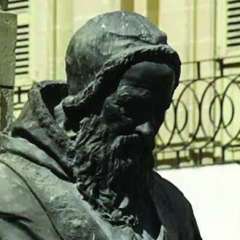Zašto čistilište nije srednjevekovna fikcija?
Оцени ову тему
-
Чланови који сада читају 0 чланова
- Нема регистрованих чланова који гледају ову страницу
-
Сличан садржај
-
- 22 одговора
- 772 прегледâ
-
- 27 одговора
- 781 прегледâ
-
Zasto sv. Sava autokefalnost nije trazio od maticne Ohridske arhiepiskopije? 1 2 3 4 7
Од carjunaka,
- 92 одговора
- 3473 прегледâ
-
NESTALA DEVOJČICA JOVANA ŽIVKOVIĆ: Otac je čekao na stanici u Beogradu, nije izašla iz autobusa!
Од JESSY,
- 5 одговора
- 401 прегледâ
-




Препоручена порука
Придружите се разговору
Можете одговорити сада, а касније да се региструјете на Поуке.орг Ако имате налог, пријавите се сада да бисте објавили на свом налогу.